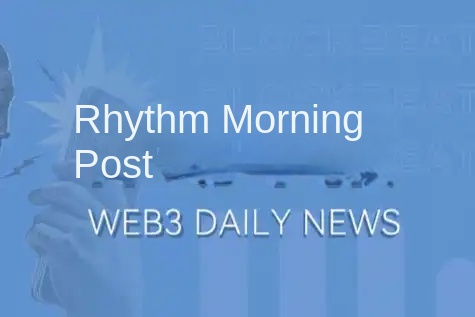[Real-time update] Which DeFi protocols have started to ban Tornado Cash-related addresses?
On August 8, the U.S. Department of the Treasury’s Office of Foreign Assets Control (OFAC) announced that Tornado Cash would be included in the Sanctions List (SDN), Including its website itself and multiple Ethereum wallet addresses were banned. Additionally, the injunction prohibits all U.S.-based individuals and entities from interacting with Tornado Cash or any Ethereum wallet address associated with the protocol. In this regard, the U.S. Treasury Department stated that since its establishment in 2019, Tornado Cash has been used to launder more than $7 billion worth of virtual currency, which may be the main reason for banning Tornado Cash.

Subsequently, Tornado Cash co-founder Roman Semenov stated that his personal GitHub account had been deactivated and his personal repository closed. Another co-founder, Alexey Pertsev, was arrested in the Netherlands on August 12 on charges of "concealing the flow of criminal funds and facilitating money laundering." Additionally, the Tornado Cash Discord channel and the DAO governance forum were also shut down on the same day.
The ban outside the circle is quickly transmitted to the inside. Crypto API and node infrastructure provider Infura and Alchemy Decided to turn off support for RPC calls to Tornado Cash from its frontend. On the same day, developer community Gitcoin stated: "I regret that Tornado Cash has been sanctioned, Suspend Tornado Cash grants, but believe privacy-preserving tools are critical to all law-abiding citizens of the Metaverse."
Gitcoin's spiritual support seems too weak, and the DeFi projects that once held the banner of "decentralization" with Tornado Cash have also "turned back". Although most protocols still do address shielding at the front end of the page, this practice still puts a big question mark on the degree of decentralization of today's encryption ecosystem inside and outside the community. BlockBeats will update the status of banned addresses on the DeFi platform in real time, and pay attention to what the DeFi projects under the "Decentralization" banner say and do.
Circle
Ban After publication, USDC issuer Circle immediately blacklisted the Ethereum addresses on the U.S. Treasury Department’s sanction list, froze the USDC access rights on these addresses, and stated that "it is expected Almost every responsible digital asset service provider in the world will follow suit and block access to Tornado Cash addresses.”
dYdX
August 10, dYdX stated that the protocol has long utilized compliant supply merchants to scan and flag accounts on the dYdX hosted matching engine. As a result of the OFAC ban, some accounts may have a portion of their funds tied to Tornado Cash, although many account holders may never have used Tornado Cash directly, and these users are often unaware of the transfers to Tornado Cash in various transactions prior to interacting with dYdX. source of their funding, but dYdX must still maintain certain restrictions on these users.
Pocket Network
August 13, Decentralized API SolutionsPocket Network issued a document stating that because Tornado Cash has been included in the sanctions list by OFAC of the US Department of the Treasury, Pocket Portal will block the interaction of multiple addresses related to Tornado Cash.
In response, Pocket Network said that while it is a global agreement, Pocket Network Inc. (PNI) is still a US company. PNI operates the Pocket Portal, which acts as an access point for anyone wishing to use the Pocket data relay service. The connection between PNI and Pocket Portal means that any activity involving the portal must comply with US regulations.
Aave
August 14, Aave posted on social media that after the OFAC ban was issued, the Aave team urgently integrated the API of blockchain intelligence company TRM Labs on the front end of IPFS to screen and block The sanctioned Tornado Cash contract has interactive addresses.

Uniswap
< p>On August 14, according to community news, the Uniswap front-end has now begun to ban addresses that have received transfer pollution from Tornado Cash-related addresses. The content of the prompt shows "The address is blocked by the Uniswap Labs interface because the address is related to one or more prohibited activities."

Flashbot
Although the leaders of the above projects questioned the ban on different occasions and expressed regret for Tornado Cash, this cannot heal the internal friction of the entire encryption community. BlockBeats will continue to pay attention to which "decentralized" project parties will stand on the same line with the supervision in the future.
Welcome to join the official BlockBeats community:
Telegram Subscription Group: https://t.me/theblockbeats
Telegram Discussion Group: https://t.me/BlockBeats_App
Official Twitter Account: https://twitter.com/BlockBeatsAsia


 Forum
Forum Finance
Finance
 Specials
Specials
 On-chain Eco
On-chain Eco
 Entry
Entry
 Podcasts
Podcasts
 Activities
Activities
 OPRR
OPRR








